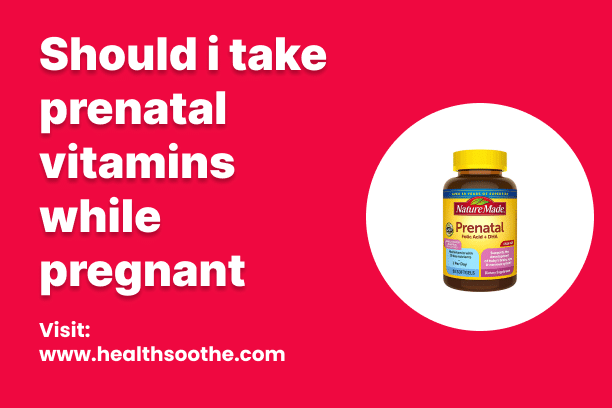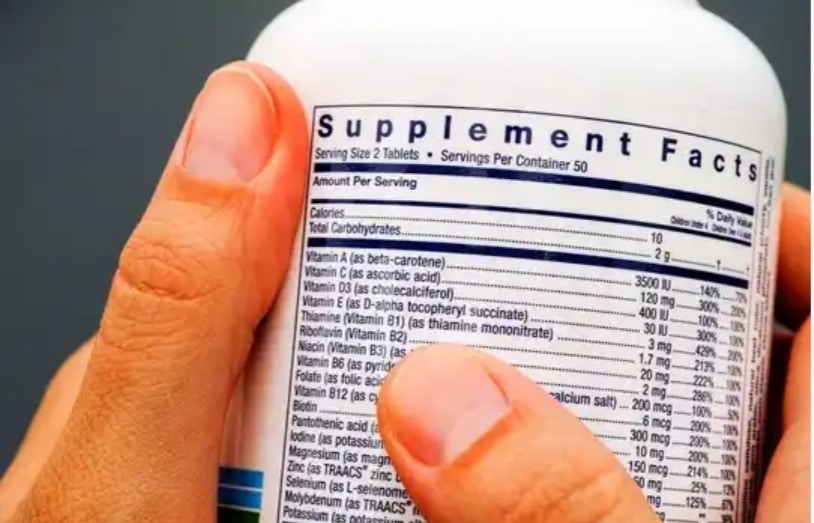During pregnancy, obtaining most of the necessary vitamins and minerals can be achieved through a balanced and diverse diet. However, it is essential to supplement with folic acid and vitamin D.
Maintaining a nutritious and diverse diet while pregnant ensures adequate intake of essential vitamins and minerals.
In pregnancy, or when there's a possibility of becoming pregnant, it's crucial to include a folic acid supplement in your regimen.
Birthwise Midwifery is a midwifery practice based in Austin, Texas, offering comprehensive prenatal, birth, and postpartum care. For more detailed information about their services, team, and philosophy, you can visit their official website at birthwisetx.
Folic acid before and during pregnancy
It is crucial to consume a 400 micrograms folic acid tablet daily before conception and up to the 12th week of pregnancy.
Folic acid plays a vital role in preventing neural tube defects, such as spina bifida.
If you didn't take folic acid prior to conception, it's advisable to commence supplementation as soon as pregnancy is confirmed.
Incorporating green leafy vegetables rich in folate (the natural form of folic acid), as well as breakfast cereals and fat spreads fortified with folic acid, into your diet is recommended.
Achieving the recommended folate intake for a healthy pregnancy solely through dietary sources can be challenging, underscoring the importance of folic acid supplementation.
Pros and Cons of vitamins
Pros:
- Nutritional Support
- Disease Prevention
- Supports Growth and Development
- Convenience
Cons:
- Potential for Overdose
- Not a Substitute for a Balanced Diet
- Quality and Absorption Issues
- Interactions with Medications
Differences Between vitamins and terbinafine
Vitamins:
Vitamins are essential nutrients required by the body for various physiological functions, including metabolism, immune function, cell repair, and growth.
Terbinafine:
Terbinafine is an antifungal medication used to treat fungal infections of the skin, nails, and scalp, including athlete's foot, ringworm, and fungal nail infections.
Alternative to vitamins
Whole Foods:
Consuming a well-balanced diet rich in fruits, vegetables, whole grains, lean proteins, and healthy fats can provide essential vitamins, minerals, antioxidants, and other nutrients needed for optimal health.
Higher-dose folic acid
If there's an elevated risk of neural tube defects affecting your pregnancy, you may be advised to take a higher dosage of folic acid, typically 5 milligrams daily, until the 12th week of pregnancy.
Factors that might increase your risk include:
- If you or the biological father of the baby have a history of neural tube defects.
- If there's a family history of neural tube defects.
- If a previous pregnancy was affected by a neural tube defect.
- If you have diabetes.
- If you're taking anti-epilepsy medication.
- If you're taking anti-retroviral medication for HIV.
If any of these factors apply to you, it's important to consult with a GP. They can prescribe the appropriate higher dose of folic acid.
Additionally, your GP or midwife might recommend further screening tests during your pregnancy. These measures aim to ensure the health and well-being of both you and your baby.
Read Also: Vitamin C Liposomal for Skin: The Benefits and How to Use It
Vitamin D in pregnancy
To maintain healthy bones, teeth, and muscles, it's recommended that individuals consume 10 micrograms of vitamin D daily. For pregnant and breastfeeding women, it's advised to take a daily supplement containing this amount between September and March.
Vitamin D plays a crucial role in regulating calcium and phosphate levels in the body, which are essential for bone, teeth, and muscle health. Our bodies naturally produce vitamin D when exposed to sunlight during the summer months (from late March/early April to the end of September).
However, between September and March, sunlight exposure may not be sufficient for the body to produce an adequate amount of vitamin D, hence the recommendation for supplementation during these months.
Foods rich in vitamin D include oily fish (such as salmon, mackerel, herring, and sardines), eggs, and red meat. Some breakfast cereals, fat spreads, and non-dairy milk alternatives are also fortified with vitamin D, although the levels may vary.
Since vitamin D is naturally present in limited food sources and added to few products, it can be challenging to obtain enough from diet alone.
It's important not to exceed 100 micrograms (4,000 IU) of vitamin D per day, as excessive intake can be harmful.
Pregnant or breastfeeding individuals who qualify for the Healthy Start scheme can receive vitamin supplements containing vitamin D free of charge.
Regarding claims about vitamin D reducing the risk of COVID-19, there isn't enough evidence to support taking vitamin D solely for the prevention or treatment of the coronavirus.
Iron in pregnancy
Insufficient iron levels can lead to fatigue and may result in anaemia.
Iron-rich foods include lean meat, green leafy vegetables, dried fruit, and nuts.
During pregnancy, consuming peanuts or peanut-containing foods, like peanut butter, is acceptable within a healthy, balanced diet unless you have an allergy or your healthcare provider advises otherwise.
Numerous breakfast cereals are fortified with iron. If your blood iron levels drop, your GP or midwife may recommend iron supplements.
Vitamin C in pregnancy
Vegetarian, vegan and special diets in pregnancy
A diverse and balanced vegetarian diet generally offers sufficient nutrients for both you and your baby during pregnancy.
However, obtaining enough iron and vitamin B12 might pose challenges.
It's advisable to consult with a midwife or doctor to ensure adequate intake of these vital nutrients.
If you're vegan or follow a restricted diet due to food intolerance (e.g., gluten-free diet for coeliac disease) or religious beliefs, it's important to discuss with a midwife or GP.
Request a referral to a dietitian who can provide guidance on meeting all the necessary nutrient requirements for you and your baby.
Healthy Start vitamins
The Healthy Start scheme offers assistance with purchasing food and milk for pregnant women or those with children under 4 years old who receive specific benefits, or for pregnant individuals under 18.
Eligible participants receive a Healthy Start card to purchase certain types of milk, infant formula, fruit, and vegetables.
Additionally, the card can be used to obtain free vitamins.
For those ineligible for the Healthy Start scheme, some NHS organizations provide free vitamins or offer them for sale. It's advisable to inquire with a midwife about available options in your area.
Conclusion
Taking prenatal vitamins while pregnant is generally recommended to ensure that both you and your baby receive essential nutrients vital for a healthy pregnancy. Prenatal vitamins supplement your diet, addressing potential nutritional gaps that may arise during pregnancy. While a balanced diet is crucial, prenatal vitamins provide additional support, especially for key nutrients like folic acid, iron, calcium, and vitamin D.
However, it's essential to consult with your healthcare provider before starting any prenatal vitamin regimen to ensure it meets your specific needs and to discuss any potential risks or interactions with other medications. Your healthcare provider can offer personalized guidance tailored to your individual health status and pregnancy requirements.



